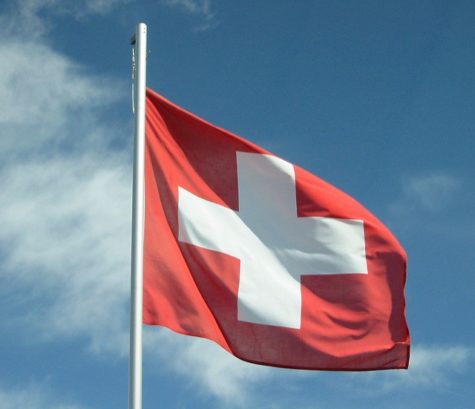ArchOver’s Angus Dent warns that savers are unlikely to benefit from the latest interest rate hike, although it is step in the right direction for the Bank of England. Read the full article here.
Tag: base rate
France
There was a time, not so long ago, when having some cash in the bank earning a reasonable level of interest was considered quite a smart thing to be doing, particularly since you could be pretty certain that your capital was safe. But that was before the 2008 financial crisis and interest rates fell through the floor – not just in the UK, but globally. Your money remains in a secure place, but you are likely to be earning next to nothing in real terms.
The problem is so severe in some parts of the world – Japan, for example – that you have to pay a bank to look after your cash because interest rates are negative. Closer to home, in France, where the equivalent to what we call Base Rate is 0%, the very best rate of interest you can hope to receive on your savings is 1.75%; or 0.75% if you want to retain reasonable access to your money.
If you take into account the fact that inflation in France is running at around 0.6% – not too bad, in European terms – it means that de facto savers are earning zilch. And if you factor in that their powerful neighbours, Germany, on which France depends for so much of its trade exports, have inflation running at 1.7%, it is inevitable that some of that inflation will be imported, reducing the actual return to less than zilch.
It would not take a massive leap of imagination to see that inflationary pressures are likely to increase, particularly if members of OPEC decide to restrict oil production and the global price goes through the roof as a result. To add to the gloomy outlook you have Marine Le Pen threatening to destabilise the whole political scene in France, with some commentators already speculating about the possibility of ‘FREXIT’.
All in all, it is probably not a great time to be sitting on a pile of cash in France, particularly if you rely on the interest generated to supplement your income. But if, as a French citizen, you cast your eyes across the English Channel you will see straight away that, because of the fall in the value of sterling since Brexit, investments in the UK are c12% cheaper than they were, say, six months ago. You will also see that returns of 6% or more, combined with reasonable security, are freely available through P2P loans. And if you look at ArchOver’s ‘Secured and Insured’ proposition – made possible with the help of Coface, an established French institution – you might just see the answer to your prayers. Let us hope so.

Switzerland
Switzerland is widely recognised as having one of the most independent, prosperous and stable economies in the world, which is why for decades nervous investors have regarded the country as a safe haven for their money in times of global turbulence.
In 2014, when Russia was facing huge problems and money was pouring into Switzerland chasing up the local currency, the Swiss National Bank surprised the world by dropping the domestic Base Rate to minus 0.25% in a determined effort to weaken the value of the Swiss Franc because it was damaging the country’s export effort. Today, and for the same reason, Switzerland’s Base Rate stands at minus 0.75%.
Although the Swiss economy has had two relatively sluggish years in 2015-16, it is expected to grow by around 1.5% in 2017. Yet Bond yields remain at minus 0.19%, which hardly provides rich pickings for local yield-hungry investors who, per capita, are reckoned to be the world’s wealthiest.
Back in the UK, we have a parallel situation regarding low fixed interest returns and following our decision to leave the EU – an organisation with which, of course, Switzerland has never been integrated – we are moving to a position where we will have even more in common.
The one crucial difference from an investor’s point of view is that the UK has developed some attractive alternative asset forms, such as P2P loans the demand for which is booming. Yields of 6% and more are commonplace which, bearing in mind the relative security provided by the larger platforms through provision funds or, in ArchOver’s case, credit insurance, represents something approaching a decent return.
No one is pretending that P2P loans are risk free – of course capital can be at risk – but many individuals and institutions have decided that, given all the information available, the transparency and free entry for investors to participate, the overall odds are worth accepting.
As ever, investment timing is vitally important. Sterling, which took such a battering following the Brexit vote, is slowly recovering and is expected to rise in value against currencies like the Swiss Franc. In the meantime, the lower value of our currency is doing wonders for our exporters and the UK economy is now expected to grow. All things considered, and bearing in mind that low interest rates look like being part of the financial landscape for the foreseeable future, now would seem to be a very good time to invest in UK PLC – leave it too late and you could ‘miss the bus’.
